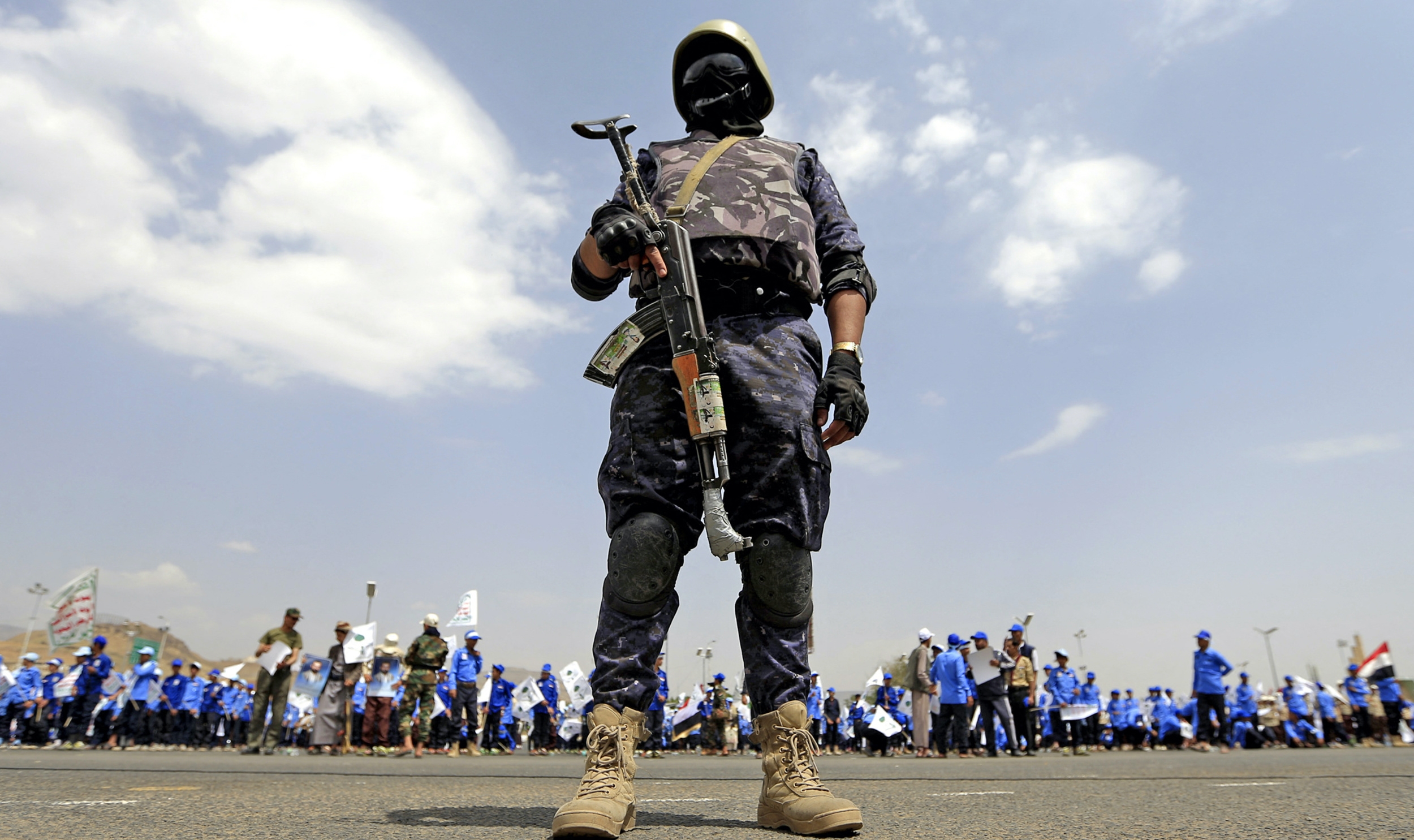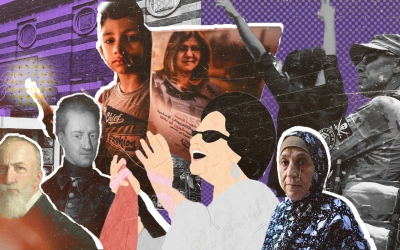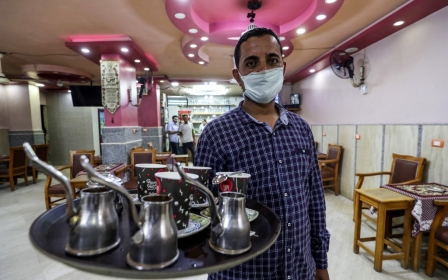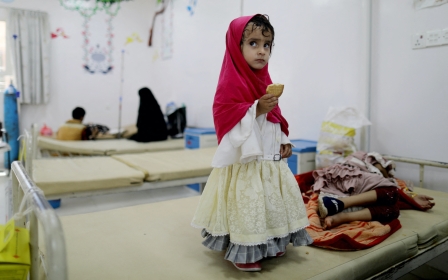Arabic press review: Houthi authorities arrest two men for announcing marriage

Married male couple arrested in Yemen's Hodeidah
Yemeni authorities in the Hodeidah province have arrested two young men after they announced their marriage in the first case of publicly declared same-sex marriage in Yemen, the London-based newspaper Al-Quds Al-Arabi newspaper reported.
Yemeni sources said the men, whose marriage has preoccupied Yemeni public opinion, were arrested by Houthi authorities in Hodeidah's al-Zuhra district.
Activists online circulated a video showing one of the region's notables at a local tribal meeting calling on authorities to "punish" the two men, while carrying a Kalashnikov rifle.
In the video, the tribal figure threatened that "if the Yemeni authorities fail to carry out their duty to punish the two young men, the people will carry out the punishment and execute them by shooting them.”
New MEE newsletter: Jerusalem Dispatch
Sign up to get the latest insights and analysis on Israel-Palestine, alongside Turkey Unpacked and other MEE newsletters
This case is the first of its kind to be reported in the media about same-sex marriage in Yemen where homosexuality is illegal and may be punishable by the death penalty.
Egyptians suffer medicine shortages
Egypt is witnessing shortages of some medicines and medical supplies in public and private hospitals, especially those produced in the United States and Europe, according to a report by Al-Araby Al-Jadeed newspaper.
The shortages have especially affected medicines for cancer treatment, chronic illnesses, and chemical and biological medicines.
Officials from 170 private pharmaceutical companies confirmed during a recent special conference in Cairo their inability to purchase medicines and local manufacturing supplies due to the Central Bank's continued restrictions imposed on imports, and the banks' failure to comply with its instructions related to financing import deals that need US dollars.
Doctors at the conference said the Egyptian Drug Authority (EDA) has been unable to meet the needs of public hospitals and medicine distributors, and admitted their own failure in meeting patients' medical needs due to the insufficient stocks they obtain from government departments.
They also warned that the drug shortage crisis may worsen in private and public hospitals, highlighting "the seriousness of the issue with the decrease in Egyptians' spending on medicine and public health due to the decline in their purchasing power as prices increase, despite the existence of many chronic and serious diseases that threaten the lives of millions."
Doctors said the lack of medicine in the market has led to the emergence of a large black market for local medicines run by companies that are marketing for medical supplies and major pharmacies. These companies, they said, receive requests from the public for medicine by phone, which they then deliver to homes at their own prices, and not at prices fixed by the government.
The heads of some of the companies attending the meeting said the failure to re-price local medicine after the deterioration of the local currency since last March has pushed dozens of factories to suspend their work due to the high cost and the scarcity of production inputs that come from abroad.
They added that this comes at a time when the "mafia" trading smuggled medicines from abroad is spreading, while these medicines are being promoted on social media, away from medical supervision, and at prices set by smugglers.
Kuwait deported 3,000 Egyptians
Security sources in Kuwait revealed that the Ministry of Interior deported 30,000 people, including 3,000 Egyptians, during 2022, according to the Kuwaiti newspaper Al-Rai.
The sources said 660 people were deported following judicial decisions, while the majority of the people expelled were administrative deportation cases in connection to "various crimes and violations, most notably drug abuse, quarrels, thefts, wine manufacturing, expiry of residence permit, and non-compliance with the country's laws". The report added that some people were deported for "the public interest”.
The majority of the people deported had come from India, followed by Egypt, the Philippines, Sri Lanka and Ethiopia.
In mid-2022, the Egyptian media highlighted the repercussions of Kuwait's drive to localise labour and dispense with foreign workers, which may threaten the return of 771,000 Egyptians to their homeland.
Morocco's mental health crisis
An official study conducted in Morocco revealed that nearly half of Moroccan adults suffer from mental illness, the Algerian newspaper Echorouk El Yawmi reported.
The Economic, Social and Environmental Council (ESEC) in Morocco said the national survey of the population aged 15 years and older showed that 48.9 percent of Moroccans suffer or have previously suffered from a psychological or mental disorder.
The report said the state's budget allocated to mental health in 2021 did not exceed two percent, and there are only 2,431 beds to treat psychiatric patients.
The ESEC said the country suffers from a lack of investment in the mental health sector, while the number of psychiatrists does not exceed 454.
The ESEC emphasised the need to work on improving the mental and psychological health of individuals by combating discrimination in all its forms, countering violence, harassment, poverty and loneliness.
It also stressed the need for the early detection and treatment of cases of suicidal thoughts and behaviours among children and youth by families and within educational institutions.
*Arabic press review is a digest of news reports not independently verified as accurate by Middle East Eye.
Middle East Eye delivers independent and unrivalled coverage and analysis of the Middle East, North Africa and beyond. To learn more about republishing this content and the associated fees, please fill out this form. More about MEE can be found here.





